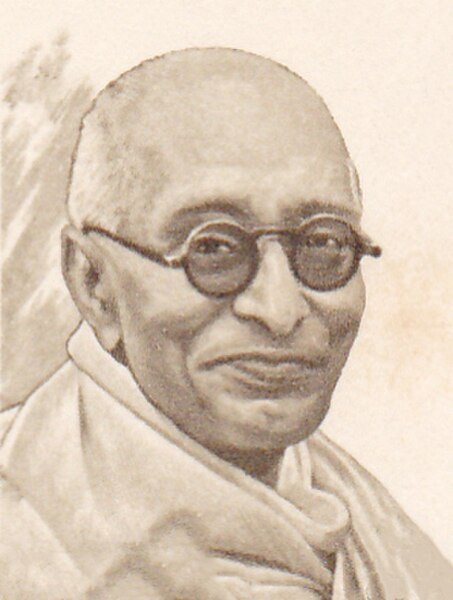Dhondo Keshav Karve, popularly known as Maharshi Karve, was a social reformer in India in the field of women's welfare. He advocated widow remarriage, and he himself remarried a widow as a widower. Karve was a pioneer in promoting widows' education. He founded the first women's university in India, the SNDT Women's University in 1916. The Government of India awarded him with the highest civilian award, the Bharat Ratna, in 1958, the year of his 100th birthday. He organized a conference against the practice of devdasi. He started 'Anath balikashram' an orphanage for girls. His intention was to give education to all women and make them stand on their own feet. Through his efforts, the first women university was set up in 20th century.
Karve on a 1958 stamp of India
c. 1916
The Bharat Ratna is the highest civilian award of the Republic of India. Instituted on 2 January 1954, the award is conferred in recognition of "exceptional service/performance of the highest order", without distinction of race, occupation, position or gender. The award was originally limited to achievements in the arts, literature, science, and public services, but the Government of India expanded the criteria to include "any field of human endeavor" in December 2011. The recommendations for the award are made by the Prime Minister to the President. The recipients receive a Sanad (certificate) signed by the President and a peepal leaf-shaped medallion with no monetary grant associated with the award. Bharat Ratna recipients rank seventh in the Indian order of precedence.
Bharat Ratna medal
In 1992, a press release was published to confer the award posthumously on Subhas Chandra Bose, which was later cancelled post the order of the Supreme Court in 1997
Dhyan Chand at the 1936 Summer Olympics. Widely regarded as the greatest hockey player of all time, Chand has not been conferred the Bharat Ratna
Image: Chakravarthi Rajagopalachari






